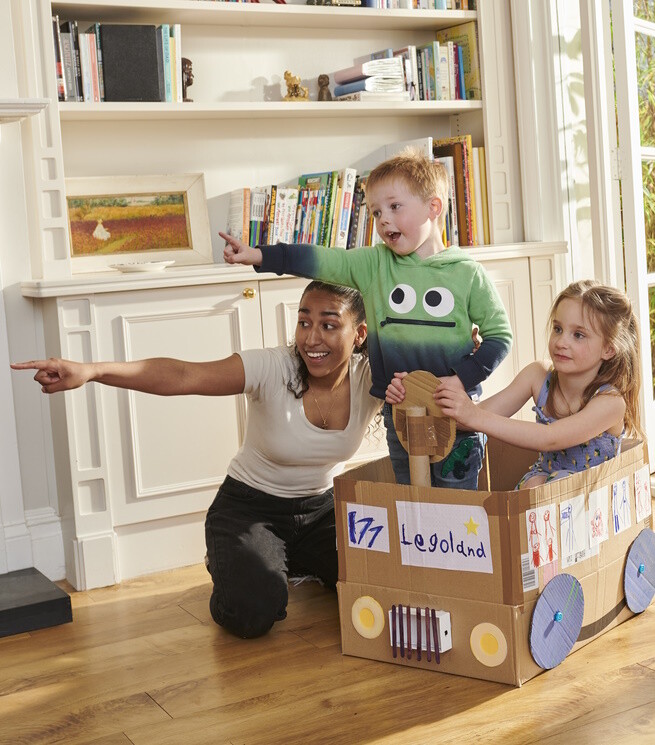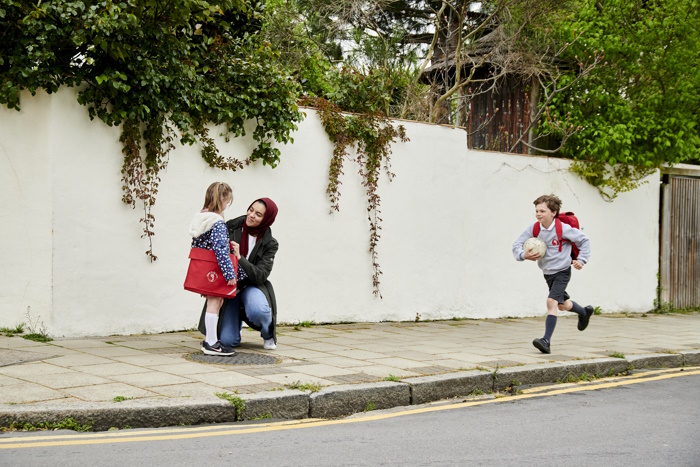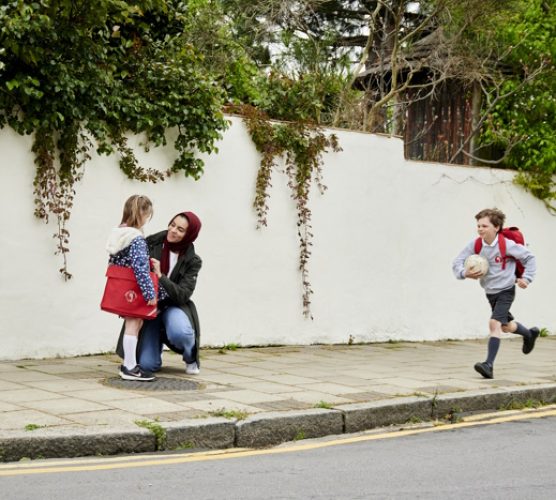When looking for childcare, there are lots of different terms to get familiar with, and it can be confusing to know who does what, where, when and why. Au pairs, nannies, and childminders are all childcare professionals who provide childcare services to families. However, there are some significant differences between the three types and parents must work out who will meet their family’s needs.
What is an au pair?
An au pair is a foreign national who lives with a host family and provides childcare in exchange for room, board, and a small stipend. Au pairs typically work around 25 hours per week and have set schedules, which may include evening and weekend hours. Sites like aupairworld are popular with parents for finding an au pair. In addition to providing childcare, au pairs are sometimes expected to help out with light household chores. Au pairs usually spend their free time getting to know the local culture and learning the language — it’s a cultural exchange for them and you.
What is a nanny?
A nanny is a professional caregiver who works for a family on a full-time or part-time basis from the family’s home. Nannies are responsible for all aspects of childcare, including feeding, bathing, and supervising children, as well as helping with homework and organising activities. Nannies may also be responsible for light housekeeping tasks related to the care of the children, such as washing and folding laundry or tidying up after meals.

What is a childminder?
A childminder is a self-employed caregiver who provides childcare in their own home. They are regulated by Ofsted, or an Ofsted-registered childminder agency (like Koru Kids). Childminders are responsible for all aspects of childcare, including meals, activities, and supervision. They may care for children of all ages, but are often focused on providing care for young children and are a great alternative to nursery due to their small ratios. At Koru Kids, we call our childminders Early Educators. This is because they play a major role in those all-important first steps towards learning and exploration — so much more than just ‘minding’ kids!

Differences between au pairs, nannies and childminders
One of the main differences between the three types of childcarers is the level of commitment and flexibility required. Au pairs are expected to live with the host family and typically have a set schedule, while nannies and childminders may have more flexibility in their schedules. By nature of the role, childminders work from their own homes, so won’t live with the family. Some nannies live with the family they work for, while others commute to the family every day.
Nannies and childminders are usually more expensive than au pairs, as they are typically more skilled and so receive a higher hourly rate, making them more expensive than au pairs. Au pairs are often young adults who may not have previous professional childcare experience. Nannies and childminders, on the other hand, are often more experienced and may have specific qualifications or training in early childhood education, or be a parent themselves.
How much do au pairs, nannies and childminders cost?
Families considering hiring an au pair, nanny, or childminder should carefully consider their needs and budget before making a decision. Au pairs may be a good option for families who are looking for a flexible, affordable childcare solution and are willing to host a foreign national in their home.
In the UK, au pairs typically receive a weekly allowance of around £75-£100 per week, as well as room and board. This amount may vary depending on the location and the specific arrangement with the host family.
Nannies and childminders may be a better fit for families who are looking for a more experienced person to care for their kids, and are willing to pay a higher hourly rate. Nannies in the UK generally receive an hourly rate that can vary widely depending on their qualifications, experience, and location.
The average hourly rate for a nanny in the UK is about £12 per hour, although rates can be higher in urban areas or for nannies with specialised qualifications. Koru Kids nannies start from £14 an hour – that’s inclusive of tax, admin fees and their training.

Childminders in the UK typically charge an hourly rate that is lower than the rate for a nanny because they can look after multiple children at once. The average hourly rate per child for a childminder in the UK is £5-£8.
It’s important to note that these are just rough estimates and actual costs may vary widely depending on the specific requirements of the family or circumstances of the childcarer. It’s important for families to carefully consider their budget and negotiate a fair wage with the caregiver that takes into account their qualifications, experience, and any additional benefits or responsibilities.
Regulated or relaxed?
Another factor to consider when deciding on your childcare is the level of interaction and integration you’d like to have with them. Au pairs often become a part of the family and may have a more personal relationship with the children and other family members. Nannies and childminders may have a more professional relationship with the family and may not be as involved in the daily life of the household.
In terms of benefits, au pairs may be able to offer a more diverse cultural experience for the children in their care and may be able to help with language learning. But, nannies and childminders may have more specialised training and experience in early childhood education, which can be beneficial for children’s development. At Koru Kids, all our Early Educators are trained in forest education and emotional wellbeing.

When it comes to regulation and oversight, the regulation of au pairs will depend on the host country and the level of vetting that the organising company carries out. Nannies, unless Ofsted- registered or hired through an agency, are not always regulated. This is one of the main benefits of hiring a nanny through Koru Kids. Childminders are always registered — whether that’s via an agency or with Ofsted directly.
In summary, the main differences between au pairs, nannies, and childminders are their level of commitment and flexibility, their level of training and experience, and their cost. Families should carefully consider their needs and budget before deciding which type of caregiver is right for them, and should carefully screen and interview candidates to ensure that they find someone who is responsible, experienced, and a good fit for their family.
If you’re looking for a nanny or childminder, start your search with Koru Kids.



